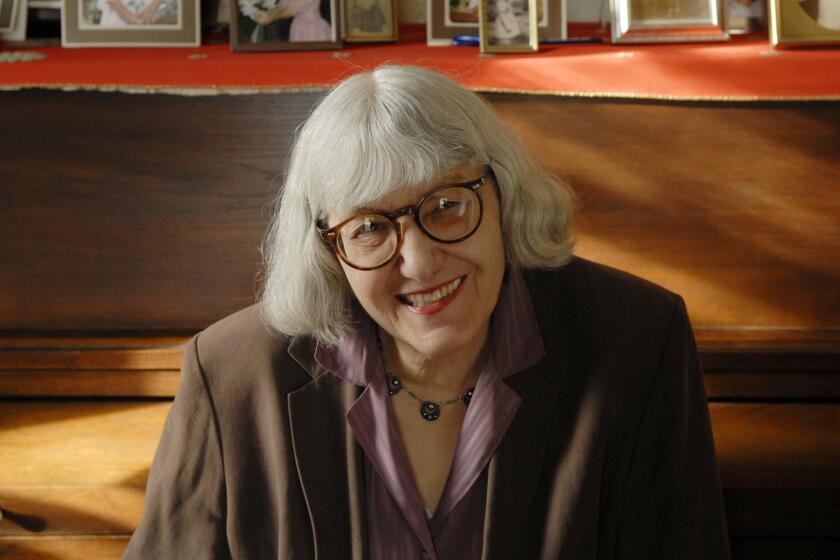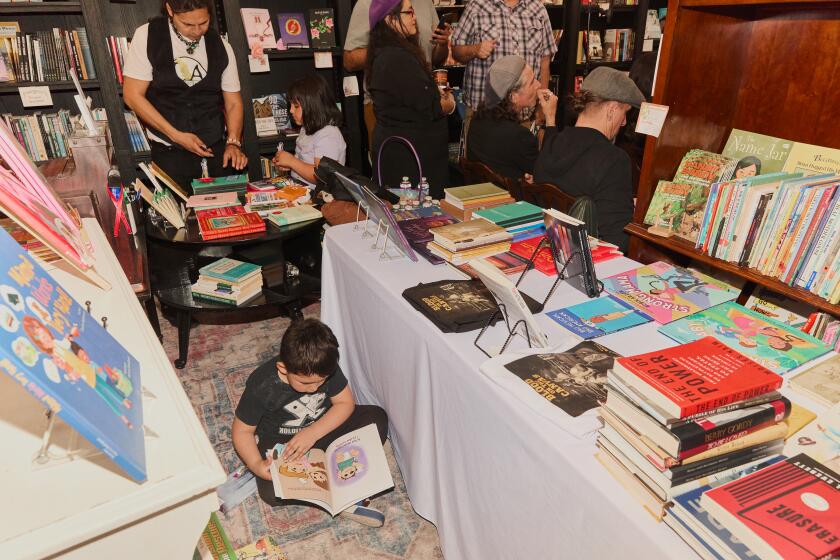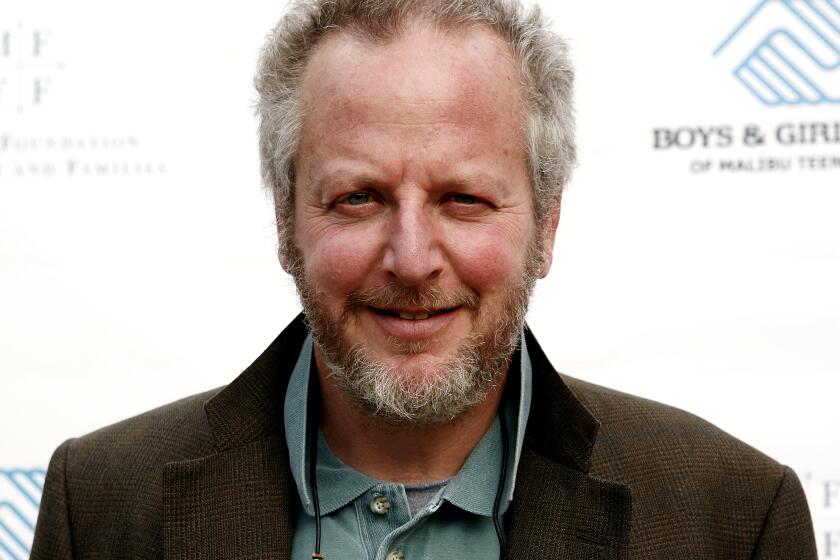Review: Cynthia Ozick, nearly 93, writes her age in the evocative novella “Antiquities”
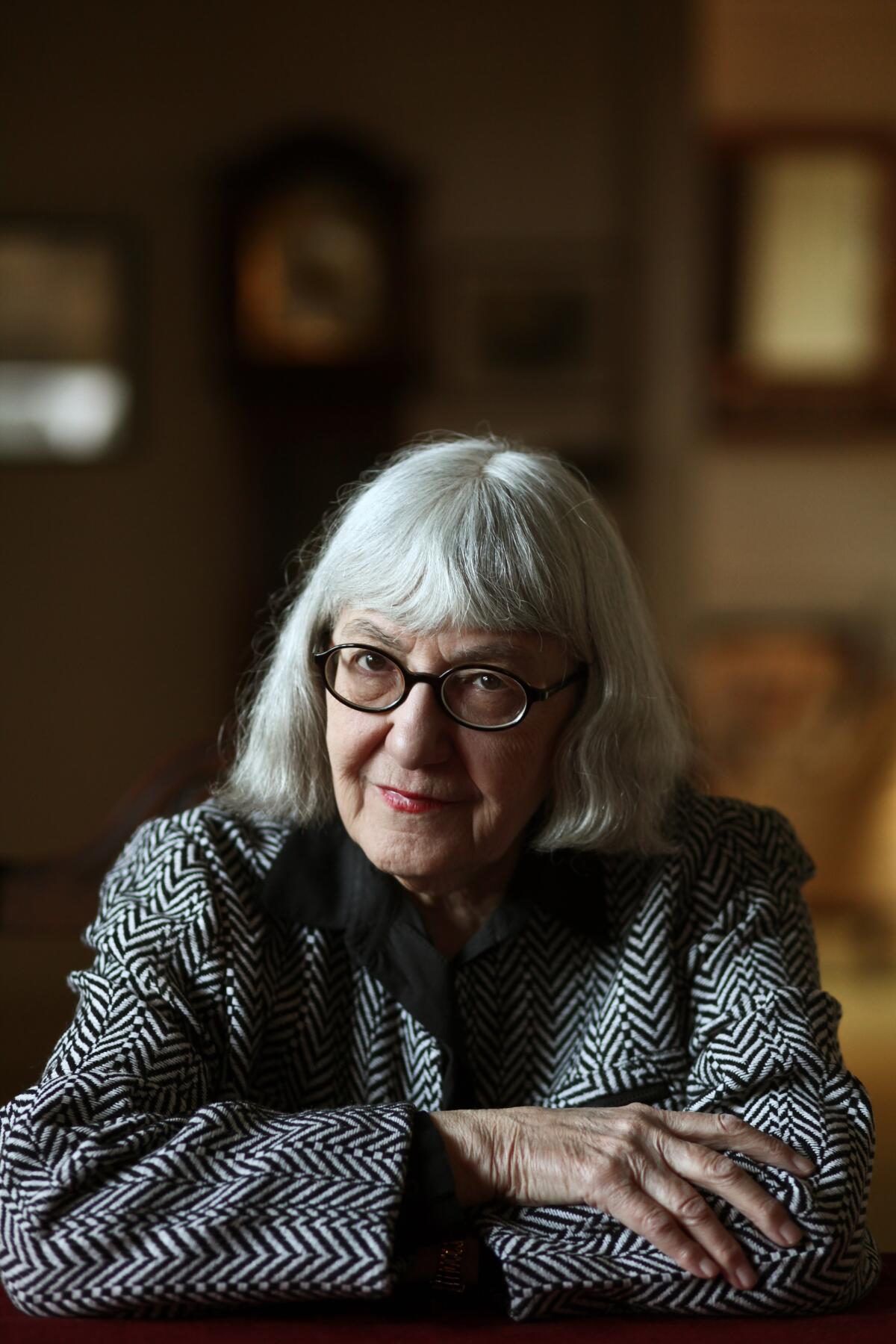
On the Shelf
Antiquities
By Cynthia Ozick
Knopf: 192 pages, $21
If you buy books linked on our site, The Times may earn a commission from Bookshop.org, whose fees support independent bookstores.
Cynthia Ozick’s “Antiquities” is a work of old age. That may seem obvious, given that its narrator, Lloyd Wilkerson Petrie, is an octogenarian reconsidering an unresolved relationship of his youth. Yet I’m referring less to Lloyd than to his creator, who turns 93 on April 17.
I hesitate to push this point too hard; it’s dangerous to conflate a writer with her character. Still, how else to interpret the most trenchant passages in the novella, which reflect on mortality and time? “I think incessantly of death, of oblivion,” Lloyd acknowledges, “how nothing lasts, not even memory when the one who remembers is gone.” Can I be the only reader to see in these sentiments the figure of Ozick peeking out from behind the fictive veil?
To some extent, this is because “Antiquities” is a book that traffics in its own process of being written. In the course of what he calls a memoir — although it operates more as a loose set of diaristic recollections — Lloyd offers excuses or explanations for the slowness of his progress, pleading physical as much as emotional reticence. “The reader will, I trust, understand why I must eke out my memoir in these unsatisfying patches,” he opens one entry. “In part it is simple fatigue.”
Ozick has long been a writer whose fiction is aware of itself through the lens of literature. Her 2010 novel “Foreign Bodies” is constructed as an echo of Henry James’ “The Ambassadors,” while “Heir to the Glimmering World,” which came out in 2005, features a character inspired by Christopher Milne. In “Antiquities,” however, the connections evoked by form and narrative are not critical or intellectual but emotional.
Lloyd is intensely aware of the change — the impending disappearance — that makes him desperate to settle a few things. One of seven remaining trustees of the long-shuttered Temple Academy for Boys, he has been charged with spearheading a memory project, in which each trustee will produce a brief memoir of his time at the school. Complicating matters, all seven currently live on campus, which has been reconfigured into a kind of retirement community for them. This means the past, or at least its landscape, is never fully out of reach. The year is 1949, and as Lloyd recalls his boyhood association with Ben-Zion Elefantin, a Jewish student shunned by the other boys, he can’t help but reveal himself as well.
Cynthia Ozick, essayist and acclaimed novelist, shelters from coronavirus and discusses anti-Semitism, the Spanish flu and longevity.
Describing a collection of artifacts he inherited from his father (“clay lamps, jugs with handles like ears and spouts like the mouth of a fish, amulets, female figurines, and the like”), he remembers, “I had carried them to the Academy … with no notion of where I could keep them. Not on display in my cold little Fifth Form cell, like the foolish feminine bric-a-brac we had at home: this would surely invite jeers.” The irony is that nearly eight decades later, the character remains in hiding — not from the other students now but from the trustees. When, after all this time, his collection is finally discovered, he is subjected “to muted but sly hints and taunts. … My worthy peers, elderly widowers all, display the spiteful conduct of a pack of kindergartners!”
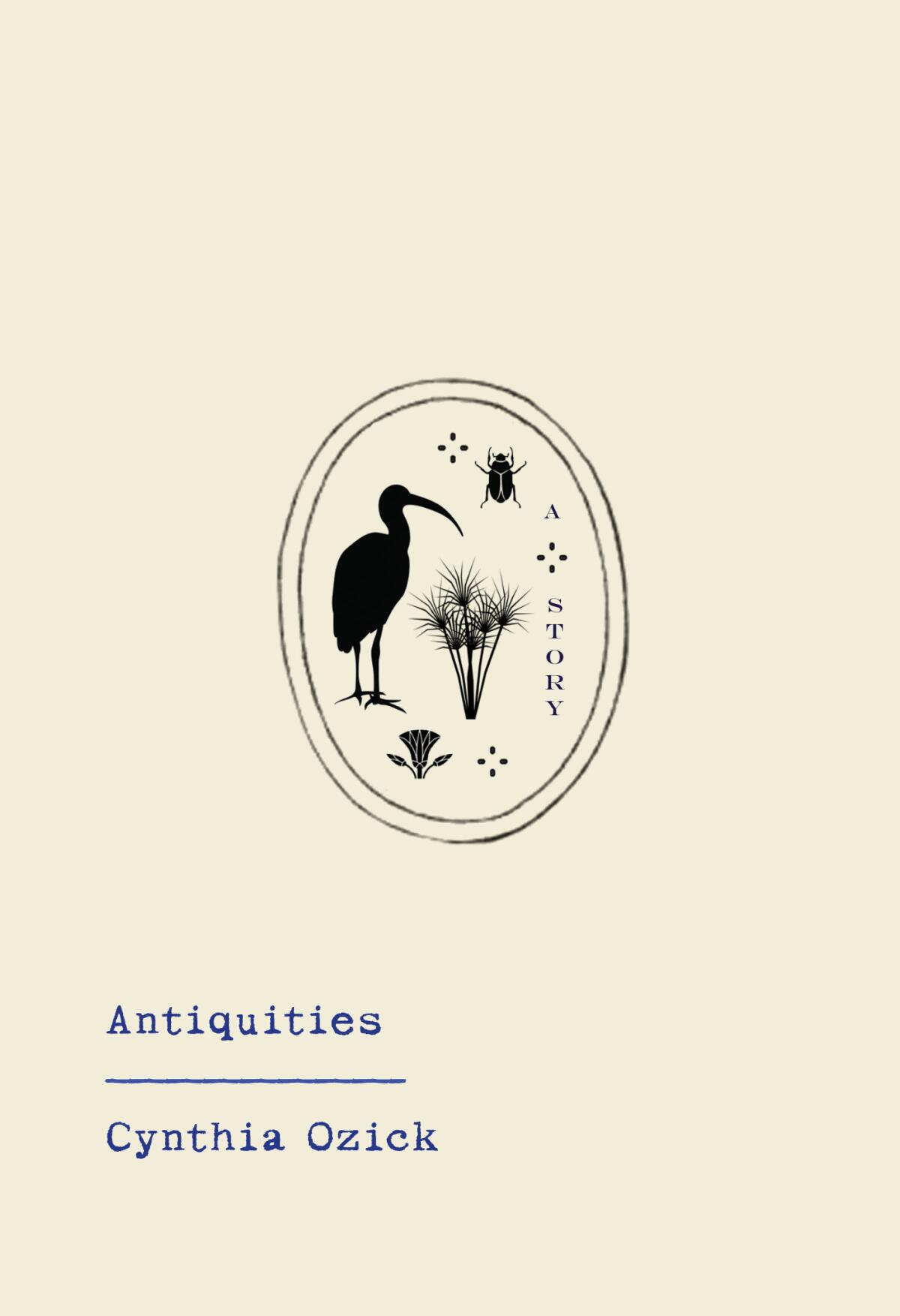
Ozick is doing something interesting here — or a couple of interesting somethings. First, she is blurring the line between past and present to reflect not only the muddle of her protagonist’s memory but also the insular society in which he has spent his life. Even more, she is aligning Lloyd, a scion of the WASP establishment, with the outsiders, the denigrated — who, in the rigidly hierarchical universe of “Antiquities,” are mostly Jews. His only two school friends are Jewish, as is the cook with whom, as an elderly widower himself, he has a brief but vivid fling. More to the point, he is ostracized, a pariah both as a student and later as a trustee.
This is hardly unfamiliar territory for Ozick; you might say she’s been working from within it all along. I think of the golem in “The Puttermesser Papers” or the death camp in “The Shawl.” “Antiquities,” though, flips the dynamic, framing it through the other end of the lens. Lloyd is a genteel anti-Semite, convinced that his privilege is proof of his superiority. “I was embarrassed by all this untampered emotion,” he admits about one Jewish acquaintance. “That is how these people are, their overflowing sentimentalism. Their motion picture style of exaggerated feeling.” (In another irony — entirely intentional — Lloyd’s son, rather than assume his role as Petrie heir, has decamped to write screenplays in Hollywood.)
The novel is the crown jewel of culture for Cynthia Ozick, who has written novels, short stories and criticism, winning major plaudits in all forms.
Here is the prowess of the novella, as well as its author, now in her 10th decade: “Antiquities” gives us a narrator not only unreliable but actively self-deceptive, unable to reckon with who he is. That on some level Lloyd recognizes this only underscores the depth of his denial and disgrace. This emerges most fully in his memories of Elefantin, whom he posits as the Johnson to his Boswell, his life spent in the reflection of the other’s light. That their friendship, such as it is, lasts only a short time makes Lloyd’s longing — for resolution or reconciliation, for the chance to work through his sense of having been abandoned — more intense. “What has become of me?” he wonders halfway through the telling. “How can I find my way out of this wilderness of hesitation? Or dare I say shame?”
The answer is that there is no answer — that our history, like everything, evaporates, leaving us alienated from ourselves. All these events, Ozick wonders, in what way do they add up? “And how can I go on with my memoir,” Lloyd laments, “to what end, for what purpose? What meaning can it have, except for its writer? And for him too (I mean for me) the past is mist, its figures and images no better than faded paintings. Where now is Ben-Zion Elefantin, did he in fact exist?” The same might be said of Lloyd or Ozick or any one of us.
Age, we want to imagine, is what happens if we are lucky. But the reality is more complex. That is both the subject and the subtext of this novella, which is most resonant, perhaps, in how it never looks away from the slow but steady disintegration that awaits. Lloyd is a flawed and contradictory character, yet his vulnerability becomes its own kind of force. In that, it’s a lot like life, in which, Ozick reminds us, “Absence itself is a kind of proof.”
A year of isolation left us with a wealth of words. Hear from the poets, historians and fiction writers who gave us the most powerful books of 2020
Ulin is the former book editor and book critic of the Times.
More to Read
Sign up for our Book Club newsletter
Get the latest news, events and more from the Los Angeles Times Book Club, and help us get L.A. reading and talking.
You may occasionally receive promotional content from the Los Angeles Times.
